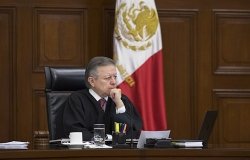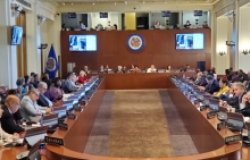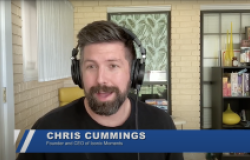Wilson Center Fellow Devin Fergus to Discuss New Book on Black Nationalism and Liberalism
Liberalism, Black Power, and the Making of American Politics, 1965-1980 will be featured in a panel discussion and community celebration October 25 in Durham, N.C.
Wilson Center Fellow Devin Fergus will take part in a panel discussion called "Durham Acts: Grassroots Engagement Across the Color Line," a community celebration on October 25 at 3 p.m. at the Hayti Heritage Center in Durham, N.C. There he will discuss his new book, Liberalism, Black Power, and the Making of American Politics, 1965-1980. The book, which examines the interplay between black nationalism and liberalism, looks at several North Carolina case studies: Malcolm X Liberation University, Soul City, Black Panthers in Winston Salem with successful campaigns for state legislature, and the Joan Little case.
Timed to coincide with the 40th anniversary of Malcolm X Liberation University, the event will also feature Howard Fuller, the principal organizer of MXLU, and many former faculty and students will be in attendance. Additional panelists, who correspond with events discussed in Fergus's study, include Larry Little (Black Panthers), Sandy Darity (Duke University School of Public Policy), Jarvis Hall (NCCU Political Science), Karen Galloway (aka Karen Bethea-Shields), a lawyer in the Joan Little case, and Harvey Gantt (Soul City). The event is free and open to the public.
Durham Acts: Grassroots Engagement Across the Color Line
October 25, 3 p.m.
The Hayti Heritage Center
804 Old Fayetteville St.
Durham, NC 27701
Liberalism, Black Power, and the Making of American Politics, 1965-1980
In this pioneering exploration of the interplay between liberalism and black nationalism, Devin Fergus returns to the tumultuous era of Johnson, Nixon, Carter, and Helms and challenges us to see familiar political developments through a new lens. What if the liberal coalition, instead of being torn apart by the demands of Black Power, actually engaged in a productive relationship with radical upstarts, absorbing black separatists into the political mainstream and keeping them from a more violent path? What if the New Right arose not only in response to Great Society Democrats but, as significantly, in reaction to Republican moderates who sought compromise with black nationalists through conduits like the Blacks for Nixon movement?
Focusing especially on North Carolina, a progressive southern state and a national center of Black Power activism, Fergus reveals how liberal engagement helped to bring a radical civic ideology back from the brink of political violence and social nihilism. He covers Malcolm X Liberation University and Soul City, two largely forgotten, federally funded black nationalist experiments; the political scene in Winston-Salem, where Black Panthers were elected to office in surprising numbers; and the liberal-nationalist coalition that formed in 1974 to defend Joan Little, a black prisoner who killed a guard she accused of raping her. Throughout, Fergus charts new territory in the study of America's recent past, taking up largely unexplored topics such as the expanding political role of institutions like the ACLU and the Ford Foundation and the emergence of sexual violence as a political issue. He also urges American historians to think globally by drawing comparisons between black nationalism in the United States and other separatist movements around the world.
By 1980, Fergus writes, black radicals and their offspring were "more likely to petition Congress than blow it up." That liberals engaged black radicalism at all, however, was enough for New Right insurgents to paint liberalism as an effete, anti-American ideology—a sentiment that has had lasting appeal to significant numbers of voters.
Related Links
- Liberalism, Black Power, and the Making of American Politics, 1965-1980 (University of Georgia Press)
- Liberalism, Black Power, and the Making of American Politics, 1965-1980 (University of Georgia Press)
- Liberalism, Black Power, and the Making of American Politics, 1965-1980 (University of Georgia Press)










